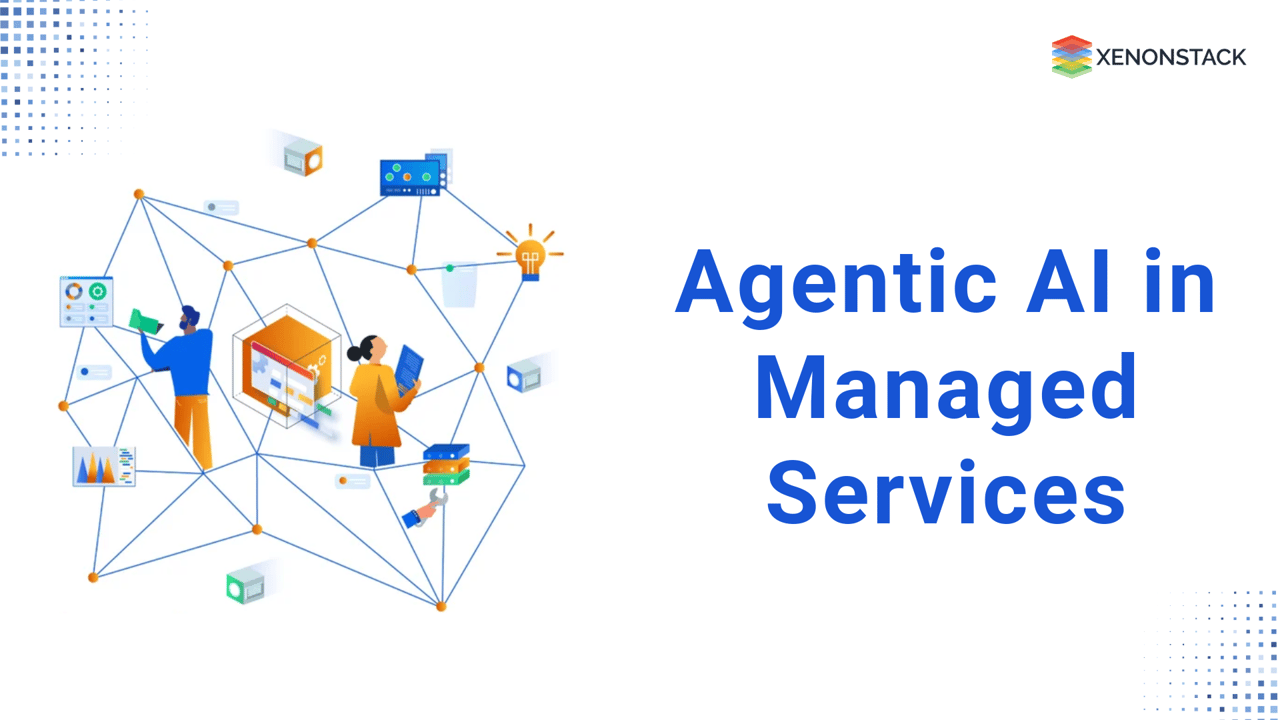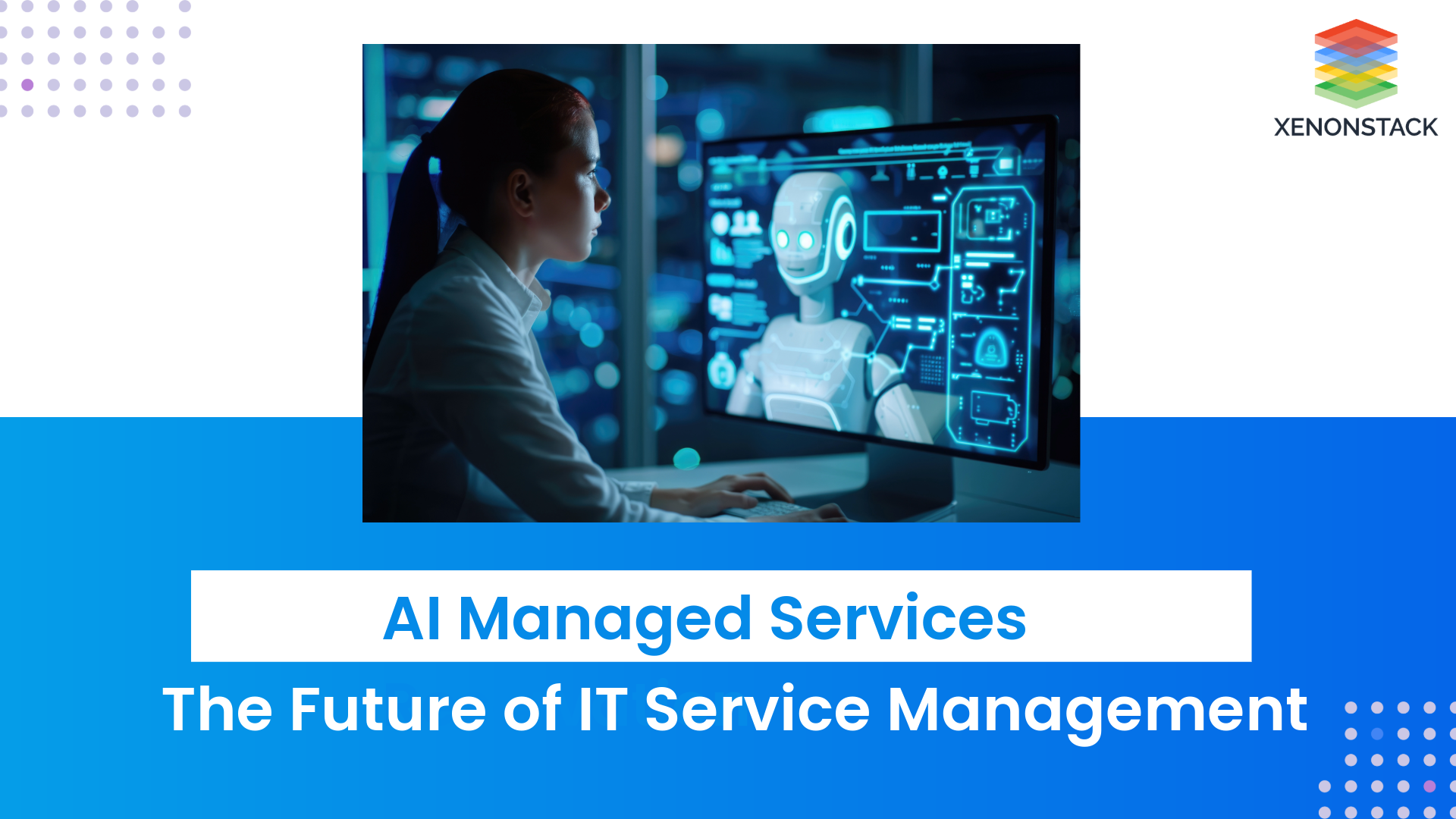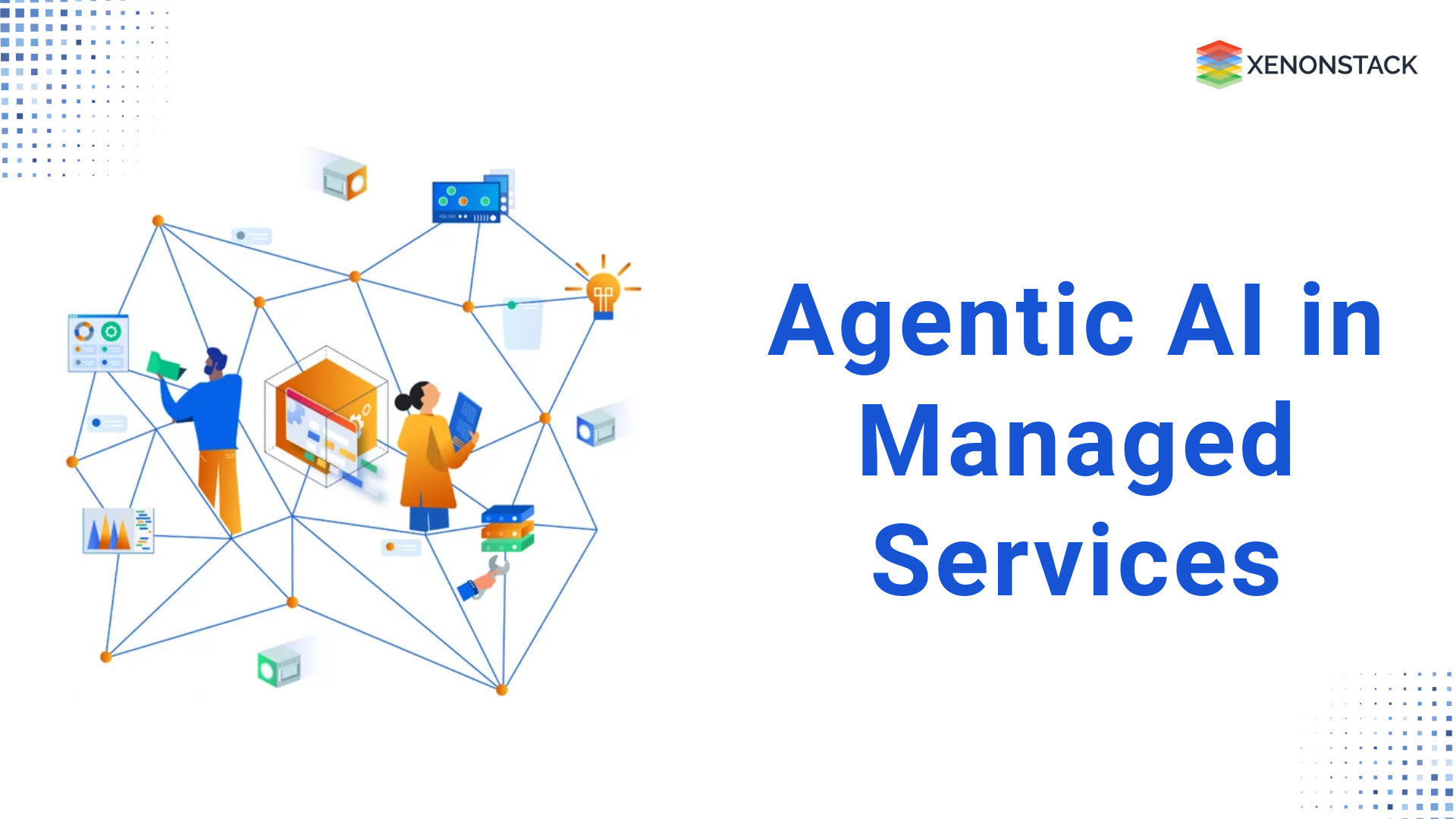
Managed infrastructure services are undergoing a major transformation, and the next frontier is being shaped by Agentic AI—AI that can act autonomously, make context-aware decisions, and take goal-driven actions. But can Agentic AI be valuable at Level 0, where organizations are just starting with minimal automation? The answer is: absolutely.
Even at this foundational stage, Agentic AI can perform high-value, autonomous operations that alleviate human workloads and lay the groundwork for intelligent infrastructure evolution.
Agentic AI in Managed Services
Beyond infrastructure operations, Agentic AI is revolutionizing managed services—from IT helpdesk to service automation and proactive user support. These intelligent agents, often powered by Large Language Models (LLMs) and Large Action Models (LAMs), are designed to operate autonomously, make decisions, learn from experience, and provide contextual, personalized services.
Even at Level 0, organizations can harness the power of Agentic AI to manage IT services more effectively by automating tasks, enhancing decision-making, and improving the overall user experience.
Understanding Level 0 in Infrastructure Operations
Level 0 represents the most basic tier of infrastructure management:
-
Manual Monitoring: Teams manually check logs, metrics, and alerts.
-
Limited or No Automation: Tasks such as system health checks and patch management are executed manually.
-
Tooling Gaps: Basic dashboards, if any; little to no centralized observability.
Despite these limitations, Agentic AI agents can step in as autonomous assistants capable of handling repetitive infrastructure tasks, triaging incidents, and even recommending fixes.
Agentic AI Fundamentals for Infrastructure Level 0
Here’s how Agentic AI brings transformation:
 Fig 1: Architecture Diagram of Agentic AI in Managed Services
Fig 1: Architecture Diagram of Agentic AI in Managed Services
1. Autonomous Log Intelligence
-
Agent Behavior: Monitors logs for failure patterns, anomalies, or unauthorized access attempts.
-
Autonomy: Triggers actions such as restarting services, opening tickets, or notifying SRE, based on pre-defined goals.
-
Example Tooling: AI agents using LLMS + lightweight log parsers (e.g., Vector, Loki) can triage incidents autonomously.
2. Infrastructure-Aware Alert Agents
-
Dynamic Threshold Setting: Unlike static monitoring, agents adapt thresholds by learning baseline behaviour.
-
Proactive Escalation: If a node’s memory consumption deviates from baseline, the agent alerts or scales resources.
-
Autonomy Level: Decision-making without manual oversight; escalation only when thresholds exceed safety ranges.
3. Self-Generating Documentation and Reports
-
Use Case: Infrastructure status reports, outage root cause analyses, or compliance summaries.
-
Agent Behavior: Continuously gathers metrics, logs, and tickets to generate standardized reports in natural language.
-
Benefit: Removes repetitive work from DevOps engineers and ensures compliance-ready documentation.
4. Intelligent Incident First Response
-
Agent Task: On receiving an alert, the agent checks relevant logs, correlates metrics, and initiates predefined fixes (e.g., restarting pods, freeing up disk space).
-
Example Scenario: Kubernetes pod crash loop — the agent detects it, gathers error details, clears the cache or restarts with safe parameters.
-
Outcome: 24/7 uptime with minimal human input.
5. Proactive Resource Optimisation
-
Functionality: Predicts usage trends (e.g., disk I/O, memory spikes) and recommends or initiates horizontal scaling.
-
Tools Used: Agentic AI integrated with Prometheus, Node Exporter, and Terraform modules.
-
Impact: Reduces cloud costs, eliminates performance bottlenecks during traffic spikes.
6. Infrastructure Chat Agents
-
Agent Role: An internal support agent for answering infrastructure-related queries (e.g., "Which node is running out of space?" or "Why is service X down?")
-
Autonomy: Accesses live metrics, infers issue causes, and responds like a junior SRE.
-
Example Stack: LangChain + OpenTelemetry + cloud-native observability platforms.
Real-Life Scenarios of Agentic AI in Infrastructure
 Fig 2: Use-Cases of Agentic AI in Infrastructure
Fig 2: Use-Cases of Agentic AI in Infrastructure
Case Study 1: Mid-Size Enterprise Using Log Agents
-
Problem: Manual log review led to late detection of system crashes.
-
Solution: Implemented an autonomous log analysis agent that scanned logs, inferred the root cause, and suggested restarts or alert escalations.
-
Outcome: Reduced MTTR (Mean Time to Resolution) by 55%, ensuring smoother uptime.
Case Study 2: SaaS Startup and Self-Healing Resources
-
Challenge: High latency issues in microservices during rapid scaling phases.
-
Agentic Response: AI agents monitored latency trends and autoscaled instances without manual input.
-
Result: Achieved consistent user experience with 30% infrastructure savings.
Case Study 3: Predictive Maintenance in Cloud Infra
-
Issue: Disk failures and service degradation before maintenance cycles.
-
Agentic Solution: AI agents:
-
Monitored disk I/O and S.M.A.R.T. data
-
Predicted potential hardware failures
-
-
Impact: Enabled proactive replacements, reducing downtime by 40%.
Agentic AI in Managed Services
-
Function: Automates the onboarding process for new hires.
-
How It Works: Grants access to necessary systems and provides startup information autonomously.
-
Benefit: Accelerates employee readiness while reducing manual IT effort.
-
Function: Handles routine IT support requests.
-
Capabilities: Resolves password resets, software installs, FAQs with personalized responses.
-
Benefit: Provides instant assistance, improves helpdesk efficiency, and scales support coverage.
-
Function: Automates detection and response to security threats.
-
How It Works: Alerts teams, isolates affected systems, and triggers containment actions.
-
Benefit: Reduces time-to-action and mitigates risks autonomously.
4. Predictive Maintenance in Managed Environments
-
Function: Monitors devices and system health to anticipate failures.
-
Technology: Uses telemetry, logs, and anomaly detection to flag risks.
-
Outcome: Prevents service disruptions, reduces reactive ticket volume, and ensures uptime.
Benefits of Agentic AI at Level 0
-
Immediate Efficiency Gains: Reduces routine workloads in monitoring, documentation, and response.
-
Lower Incident Resolution Time: Agents take proactive steps before problems escalate.
-
Increased Observability Maturity: Level 0 evolves into a more structured, data-aware ecosystem.
-
Foundation for Level 1/2 Automation: Builds confidence and architecture for future intelligent infrastructure.
Challenges & Considerations in Managed Services
-
Data Hygiene: Like generative models, agentic systems depend on clean logs, accurate metrics, and well-defined operational parameters.
-
Interoperability: Integrating AI agents into legacy infrastructure requires proper API access and permission handling.
-
Training Teams: While agentic systems reduce manual tasks, human teams need training to understand, trust, and collaborate with them.
-
Security Governance: Autonomous action comes with the need for AI guardrails, permissions, and auditability.
The Role of Agentic AI in Enhancing Infrastructure Support Experiences
24/7 Predictive Support: With no manual intervention, agents act instantly on signs of failure or degradation.
Natural Language Interfaces: Engineers can interact with infrastructure using plain language.
Knowledge Retention: AI learns from incidents and builds institutional knowledge that new engineers can access instantly.
Resilient Multitenancy: In MSP models, AI isolates, manages, and optimises infrastructure for each client automatically.
The Road Ahead: Future of Agentic AI in Infrastructure
-
Fully Autonomous Operations Centres: Agentic AI will lead the evolution from manual NOCS to Autonomous Infrastructure Control Centres, where agents diagnose, triage, resolve, and document incidents end-to-end.
-
Predictive Maintenance and Auto-Patching: Agents will monitor system health, detect degrading performance, and trigger automated patch rollouts, reducing zero-day vulnerabilities and downtime.
-
Distributed Edge Infrastructure Agents: Agents operating at the edge will make local decisions based on localised context, bringing real-time AI into Iot and 5G infrastructure ecosystems.
-
Cross-System Intelligence: AI agents will learn infrastructure behaviors across cloud, on-prem, and hybrid environments to offer cross-platform decisioning — critical in multi-cloud strategies.
-
Collaborative AI & Human Ops Teams: Agentic AI won’t replace infrastructure teams, but will become intelligent co-operators, automating menial tasks and enabling humans to focus on innovation.
Next Steps with Agentic AI
Talk to our experts about implementing Agentic AI in Managed Services — discover how various industries and departments leverage Agentic Workflows and Decision Intelligence to become decision-centric. Utilize AI to automate and optimize IT support, service delivery, and operations, boosting efficiency, responsiveness, and user satisfaction.


